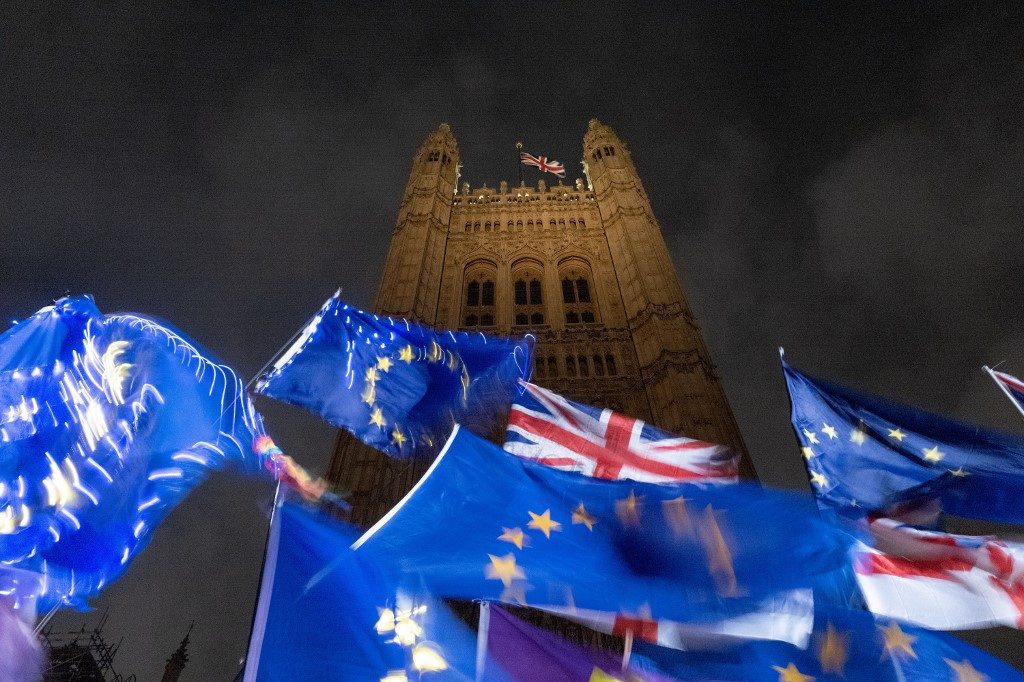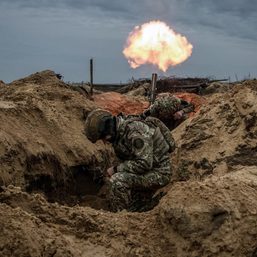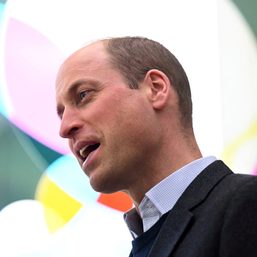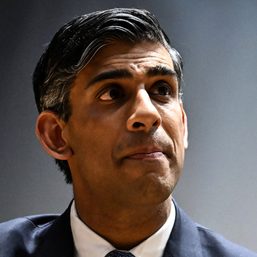SUMMARY
This is AI generated summarization, which may have errors. For context, always refer to the full article.

Britain and the European Union struck a trade deal Thursday, December 24, after 10 months of intense negotiation allowed them to soften the economic shock of Brexit.
When the UK leaves the EU single market at the New Year it will not now face tariffs on cross-Channel commerce, despite breaking off half a century of close partnership.
“We’ve taken back control of our laws and our destiny. We’ve taken back control of every jot and tittle of our regulation in a way that is complete, and unfettered,” British Prime Minister Boris Johnson declared.
EU Commission president Ursula von der Leyen was more measured.
“At the end of a successful negotiations journey I normally feel joy. But today, I only feel quiet satisfaction and, frankly speaking, relief,” she said, citing English playwright William Shakespeare: “Parting is such sweet sorrow.”
She also warned that, protected by the deal from unfair British competition, “The single market will be fair and remain so.”
And she urged the 440 million Europeans remaining in the 27-nation union to put the drama of the 4 years since Britain’s Brexit referendum behind them and to look to the future.
“I say it is time to leave Brexit behind. Our future is made in Europe,” she said.
Britain formally left the EU in January after a divisive referendum in 2016, the first country to split from the political and economic project that was born as the continent rebuilt in the aftermath of World War II.
But London remains tied to the EU’s rules during a transition period that runs until midnight on December 31, when the UK will leave the bloc’s single market and customs union.
‘Solid foundations’
The final 2,000-page agreement was held up by a last-minute dispute over fishing as both sides haggled over the access EU fishermen will get to Britain’s waters after the end of the year.
Von der Leyen said that although the UK would become a “3rd country” it would be a trusted partner.
Johnson – who rode to power pledging to “get Brexit done” – insisted it was a “good deal for the whole of Europe and for our friends and partners as well.”
Leaders around the continent were quick to herald the 11th-hour accord that heads off the threat of Britain crashing out of the EU after 47 years of shared history with no follow-on rules.
Irish premier Micheal Martin – whose EU member state would have been hard hit by a no-deal – said the accord was the “least bad version of Brexit possible.”
German Chancellor Angela Merkel said she was “confident” that the deal was a “good outcome” with French President Emmanuel Macron – often portrayed as a bogeyman by the British tabloids – saying that “Europe’s unity and firmness paid off.”
Christmas present?
Johnson was triumphant on Christmas Eve, calling the deal a “present” for Britain, but reaction elsewhere in the UK was more restrained.
“I think it’s dragged on for too long now,” David Ashby, 62, said in Lincolnshire’s Boston, summing up the mood of many.
In London, Shane O’Neill said he was pleased, adding: “It would’ve been a disaster if there would’ve been no deal.”
But Andy Finch, back in Lincolnshire, had been against Brexit from the beginning.
“I still don’t think it’s a good idea,” he said. “But that’s where we are. And, well, we’ll just have to see.”
EU states to ratify
Following the announcement of the political accord, von der Leyen’s Commission will send the text to the remaining 27 European member states.
Their ambassadors will meet on Friday, Christmas Day, and are expected to take two or three days to analyze the agreement and decide whether to approve its provisional implementation.
The UK parliament will also have to interrupt its end of year holidays to vote on the deal on December 30, and with the opposition backing its implementation, it should pass easily.
But with Britain outside the EU single market and customs area, cross-Channel traders will still face a battery of new regulations and delays with analysts expecting both economies to take a hit.
Despite this, the threat of a return to tariffs will have been removed, and relations between the former partners will rest on a surer footing.
It will be seen as win by Johnson, as well as a success for von der Leyen and her chief negotiator Michel Barnier, who led almost 10 months of intense talks with Britain’s David Frost.
After the shock 2016 referendum, European capitals were concerned that if such a large rival on their doorstep were to deregulate its industry their firms would face unfair competition.
Brussels insisted the only way to keep the land border between Ireland and the UK open was to keep Northern Ireland, a British province, within its customs union.
And members balked at giving up access to Britain’s rich fishing waters, which support fleets in France, Belgium, Denmark, Ireland and the Netherlands.
It was the question of fish that emerged as the last stumbling block this week when London pushed to reduce EU fishing fleets’ share of the estimated 650-million-euro annual haul by more than a third, with changes phased in over 3 years. The EU was insisting on 25% over at least 6 years.
In the end, the final agreement settled on the EU’s figure but cut the length of the transition period to 5 and a half years, an EU official said. After this time access to Britain’s fishing grounds will be negotiated on an annual basis. – Rappler.com
Add a comment
How does this make you feel?










There are no comments yet. Add your comment to start the conversation.